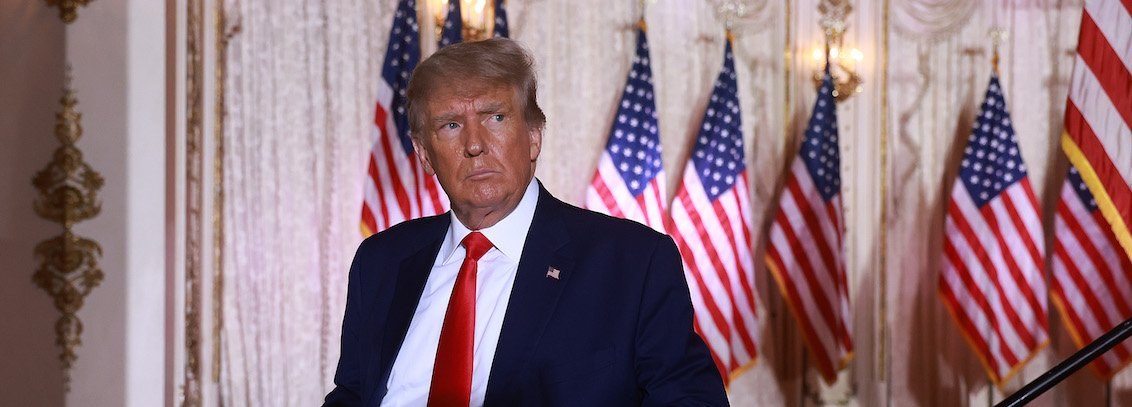
Media, Content and Agencies: Trends and insights round-up for 2023
In this piece, we round up the key trends and insights our data uncovered in the media, content and agencies world in 2023.
Streaming evolution in 2023
Amidst a world grappling with cost-of-living challenges, streaming subscriptions are not immune. Around 16% of consumers across 18 markets are now hyper-aware of streaming subscription prices. More than a quarter (77%) of respondents prioritize cost evaluations before committing to a service. However, parents, while mindful of prices, are also considering kids' content when making streaming purchases.
In 2023, most streaming giants underwent big shifts, from HBO Max's bold revamp to the emergence of ad-based subscriptions on Disney+, Amazon Prime Video US and UK, YouTube TV, and AMC+.
In India, Disney+ Hotstar faced setbacks, losing digital rights of IPL and bidding adieu to HBO. Netflix made waves by cracking down on password sharing, sparking debates on consumer willingness to pay extra. Indian consumers express a willingness to pay extra but draw the line at embracing a new subscription fee to share their account.
As streaming platforms oscillate between rescuing and canceling shows, consumer preferences and habits reveal intriguing trends. In the UK and US, a quarter of viewers wait until a series concludes before diving in, unveiling the psychology behind this trend.
There is an increase in consumers watching unlicensed content in the US, while Britons lean towards the legal route when engaging with streaming content.
With a multitude of content now available, an important question for all streamers would be how can they capture consumer attention for new releases? YouGov data highlights that word-of-mouth remains a potent influencer, with social media influencers' endorsements carrying less weight—around half of all respondents (52%) express no influence from such endorsements.
Podcasts: A sonic revolution
The boom of the podcast industry prompts questions about global listening habits like where are people tuning in? What are the diverse preferences and habits shaping the listening experience?
In the United States, politics, music, and comedy dominate with listeners tuning in while engaged in various activities such as cleaning, commuting, and cooking. Notably, retail giant Puma has jumped on the podcast bandwagon, launching a podcast to connect with younger audiences. Simultaneously, The New York Times introduces an audio app catering to its subscribers.
- How much has podcast listening grown in the US since 2021?
- What activities are Podheads doing while they are listening, and what are their unique characteristics relative to radio listeners?
- From Amazon Fresh to Zara, who’s winning with the ears (and dollars) of this affluent, growing group of Americans?
Britons showcase a love for comedy, music, and sports in their podcast choices. The Joe Rogan Experience recently attracted headlines for being the UK’s most listened-to podcast. Who exactly is drawn to this cultural phenomenon? Explore the profile of Britain’s regular podcast listeners.
In Australia, music takes the crown as the top podcast genre, albeit with a noteworthy gender divide, proving more popular among men than women.
News consumption in the digital age
In an era of rapid digital advancement, the way people consume news has evolved. From traditional media like television, radio and print newspapers to emerging platforms like podcasts and social networks, explore the preferences of news consumption in different countries and regions.
Amid this digital revolution, a notable headline emerges in the UK: "The Telegraph is up for Sale". But who constitutes its readership, and what fuels their interest in making a purchase? Moreover, advertisers keen on reaching this audience are left pondering the types of ads that resonate most. We've got the answers to these pivotal questions, insights that potential buyers and advertisers alike will find invaluable.
The dissemination of misleading and fake news was evident during the COVID-19 pandemic and continues with the rise in popularity of AI-generated content, which has possibly led to distrust. More than two-thirds (68%) of consumers across 18 markets express concern about the organized spread of false information on social media. Another survey reveals that consumers don’t take media reports about health and safety concerns related to a product they regularly use or consume at face value.
As advertising spending experiences a decline, some websites are responding by placing their content behind paywalls. In this piece, we leverage data from YouGov Surveys: Serviced poll to dissect the types of websites consumers are willing to pay for. What motivates these consumers to open their wallets? The answers provide a roadmap for content sites seeking sustainable revenue models in this shifting terrain.
Harnessing the power of BrandIndex and Profiles tools, coupled with data from YouGov Surveys – Serviced and Self-serve, we capture immediate consumer sentiments post-news occurrences.
Notable instances include:
- Understanding consumer preferences for the successor to Logan Roy at Waystar Royco on Succession.
- How viewers are adapting their viewership patterns amidst Hollywood strikes.
- Profiling Barbie and Oppenheimer fans before the summer spectacle in the US and UK.
- Exploring the impact of Taylor Swift's appearance on Travis Kelce's merch sales.
- A deep dive into the century-long journey of Disney, examining how the brand's parks and stores are perceived by consumers.
Advertising and sponsorships: Shifting preferences and strategies
Consumer reactions towards brand involvement in socio-political issues, coupled with the growing proportion of eco-conscious consumers, have impacted how people worldwide feel about brands across sectors. Data from YouGov Profiles reveals that a majority of adults in Britain (51%) and US (54%) think it is either ‘very’ or ‘somewhat’ important for a brand to have a clear/transparent point of view on wider social issues. But which issues do they really think are acceptable in a brand’s marketing materials or other communications?
Brands, known for spending millions on sports sponsorship deals, face a nuanced landscape as preferences among fans vary. When football enthusiasts were asked about their stance on shirt sponsors, just one in nine (11%) express a preference for a shirt with a sponsor on the front, while two in five (42%) lean towards a shirt without a sponsor. On the other hand, Esports followers emerge as an intriguing and promising audience for advertisers, and we delve into the reasons behind this phenomenon.
This year witnesses a few auto brands leaving a lasting impression with their innovative ad campaigns. This secured the car makers a spot in YouGov’s Advertisers of the Month, which reveals the brands with the highest growth in Ad Awareness scores every month. Building on the success of these campaigns, our in-depth exploration into the brand health of both Hyundai and Mercedes-Benz provides a comprehensive overview that you can delve into.
Speaking about advertising, Tesla CEO Elon Musk made headlines earlier this year by revealing plans for the electric vehicle (EV) giant to dip its toes into advertising for the first time in its 19-year history. A YouGov analysis uncovers key marketing opportunities for Tesla as it embarks on this unprecedented venture.
For two months running, Heinz Beanz has been Britain’s top Advertiser of the Month, meaning that public awareness of its ads has been growing faster than any other brand tracked by YouGov. However, can Heinz’s new campaigns overcome price hike effects?
Product placement: Measuring impact in content
In the growing realm of content production, opportunities for product placements have expanded at an unprecedented pace. Yet, in a time when marketers demand measurable returns on their advertising investments, product placement poses a unique challenge. Enter YouGov, with a distinctive approach to measurement through our Placement Quality Scoring (PQS).
Product placement success in key shows
- Cobra Kai Season 5 had 91 brands and 737 instances, but which product placements worked best? Delve into our analysis to uncover the success stories that emerged from this martial arts saga.
- In Emily in Paris Season 2, Emily works on a partnership between the fictional designer Pierre Cadault and real-life luggage brand Rimowa. Explore how this unique collaboration translates into tangible benefits for the brand, shedding light on the power of seamless integration within the narrative.
- In the fictional world of Ted Lasso, where sports and humor collide, Nike takes center stage as the sponsor for AFC Richmond. But what's the real worth of this strategic alliance, and how does it impact the brand's value?
Social media: The expanding influence
In our ever-connected world, the dominance of social media perpetually grows, serving as a multifaceted platform where users engage in activities ranging from shopping and airing grievances to watching reviews and advertisements. Even major brands benefit from viral social media challenges like McDonalds and its Grimace shake.
The aftermath of the controversial Twitter/X acquisition witnessed a notable shift in sentiment among the British public, revealing a growing discontent in the platform. Elon Musk's announcement to transform X/Twitter into an "everything app" raises the question: Where in the world is the demand for a WeChat-style "everything app"?
As the influence of social media expands, brands increasingly turn to these platforms for customer support. Insights from a recent YouGov Surveys: Serviced poll, conducted across 18 international markets, reveal the types of companies that global consumers engage with on social media to address complaints over the past six months.
Further exploration delves into the product categories consumers across these 18 markets turn to social media to check reviews. Whether it's phones and phone carriers, hotels, food, airlines, cars, home appliances, fashion, or financial products and services, social media emerges as a pivotal space for consumer opinions.
Singapore provides a glimpse into generational preferences for shopping on social media platforms. Among Millennials and Gen X, Facebook reigns as the most popular platform, while Gen Z leans towards TikTok and Instagram.
Meta’s new text-based app Threads became the most downloaded app within a few hours of its launch. Two weeks into the launch, YouGov’s research shows that more than six in ten urban Indians (63%) have heard of the newly launched app, and around a third of those have already joined the app (32%).
Moving on to social media influencers, food and lifestyle content creators are the most followed according to respondents from 18 international markets. However, when influencers are in the news for controversial reasons, such as poor behavior or law-breaking, how does it affect their view of the brands they work or are associated with?
However, at the end of the day, despite their widespread usage social media companies are least trusted of all to handle personal data responsibly.
Download the new Redditors report to learn:
- What are the unique demographic characteristics of Redditors?
- How are Redditors likely to respond to advertising?
- From Apothic to Legend of Zelda, who are Redditors upvoting with their wallets?
AI insights: Navigating the ChatGPT wave
ChatGPT garnered significant attention earlier this year, prompting YouGov to conduct a comprehensive survey detailed in a three-part series to gauge consumers' understanding and usage of this innovative software in Australia.
- Awareness versus Usage of ChatGPT
- What are most Australians using or planning to use ChatGPT for?
- What Australians think about ChatGPT
About artificial intelligence (AI) in general, around two-fifths of Britons (39%) say they have a good understanding of how it works and what it can be used for. Roughly half of these consumers (53%) also believe the use of artificial intelligence (AI) will benefit society in the long-term.
On a broader scale encompassing 18 markets, roughly a third of respondents (35%) believe AI will have a positive impact in generating news content in the next five years. Additionally, around 39% think AI will make TV and film recommendations better.
The most popular TV shows and movies
Through YouGov Signal we track online conversation, viewership stats, and every other key metric for thousands of brands, products, movies and TV shows.
Looking at the TV shows and movies creating the most excitement in November:
- The classic sitcom Friends is back on the radar both in the US and UK, with the highest Appetite Score of any title in the realm for November 1-15. While Friends aired its last episode in 2004, it remains one of the most-streamed sitcoms in Britain. In fact, last month, it was more streamed than any other title.
- Demand remains high for Tamil-language musical remake of A History of Violence, Leo which stars Thalapathy Vijay. The most in-demand title in the UK for the last half of October, it remains number three in the first half of November. While it has received mixed reviews, it had the highest first-day gross of any Tamil film ever.
- Video-game spinoff Five Nights at Freddy’s continues to captivate America, rising to the second spot on this list. Released at the same time in theatres and on Peacock, the horror film is about four murderous animatronic mascots in a family entertainment center.
- Martin Scorsese’s Killers of the Flower Moon is the third most in-demand title in the US. Focusing on a series of murders in the Osage Nation in 1920’s, the film features long-time Scorsese collaborators Leonardo DiCaprio, Robert DeNiro and composer Robbie Robertson.
To receive monthly insights on advertising register here.
To read YouGov’s latest intelligence for agencies explore here.
Make smarter business decisions with better intelligence. Understand exactly what your audience is thinking by leveraging our panel of 20 million+ members. Speak with us today.
Image: Getty Images


































